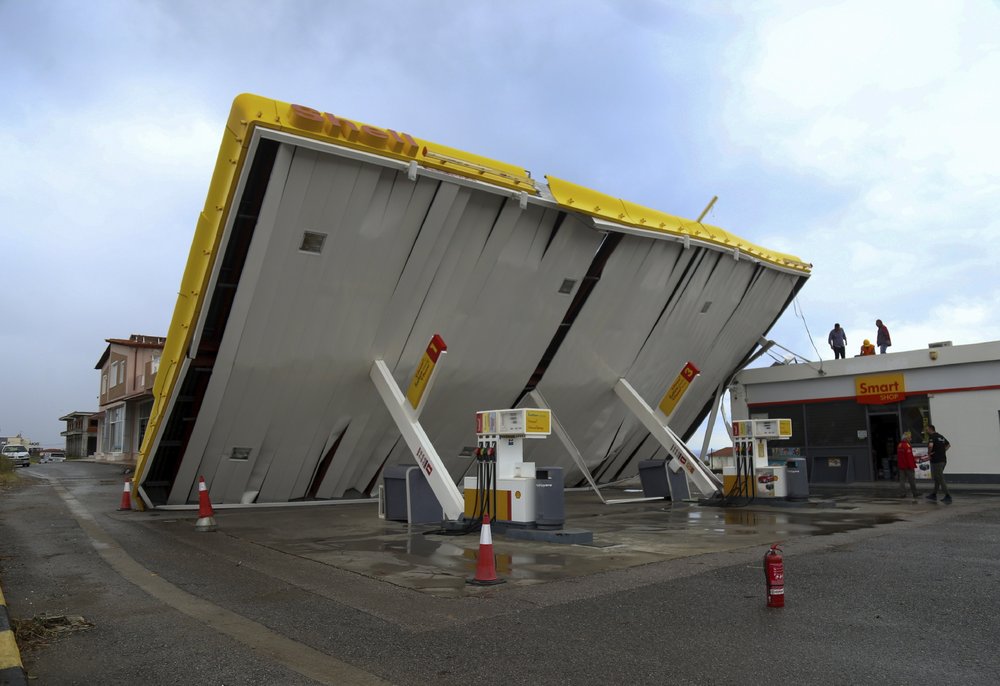A state of emergency has been declared in an area of northern Greece after a violent storm tore through seaside resorts, killing six tourists. A fisherman, who had been missing, was also found dead Thursday taking the death toll to seven.
The widespread damage wrought by the storm has renewed calls from civil protection experts, environmental groups, and the country’s Orthodox Church for a shift in policies to address the impact of climate change on Greece’s coastline terrain.
Powerful gales late Wednesday hammered the Halkidiki peninsula snapping trees and power pylons, tossing vehicles and flinging beach lounge chairs into trees, leaving swathes of debris across the coastline.
Authorities said 22 people remain hospitalized, including a woman in critical condition, and more than 100 others received medical attention. Six of the dead were tourists: two each from Russia, the Czech Republic and Romania.
Two of those who died were killed when high winds overturned their recreational vehicle, while an 8-year-old boy and his mother were killed when an outdoor restaurant’s lean-to roof collapsed. Another two were killed by falling trees.
The storm occurred nearly a year after a wildfire near Athens killed at least 100 people during a heatwave, and prompted concern over more frequent damaging weather events.
“From now on, these phenomena will occur with increasing frequency, especially in the Mediterranean area which is sensitive to climate change,” Efthymis Lekkas, a professor at Athens University’s Department of Geology and Geo-environment, who heads a public agency for earthquake and disaster planning, told state-run TV.
“We must definitely adapt our civil protection plans and incorporate updated scientific knowledge and know-how to deal with these phenomena.”
The environmental group Greenpeace called in the government to abandon plans to expand offshore natural gas exploitation and invest in renewable alternatives.
“We know that increased temperatures produce more catastrophic weather events,” said Nikos Charalambides, head of Greenpeace in Greece. “We only have a few years left to address our lack of response to climate change.”
Greece’s Orthodox Church leader, Archbishop Ieronymos, criticized the “indiscriminate use of natural resources that burden the atmosphere and ultimately causes climate change.”
The storm in Halkidiki was the first major event to be addressed by the country’s new conservative government following a general election Sunday. The army was ordered to help civilian agencies restore power and running water to damaged areas and end road closures and disruptions to rail services.
The Culture Ministry said monasteries at the nearby Orthodox Christian monastic sanctuary of Mount Athos — the easternmost section of the three-finger Halkidiki peninsula — did not suffer any serious damage.
(AP)











